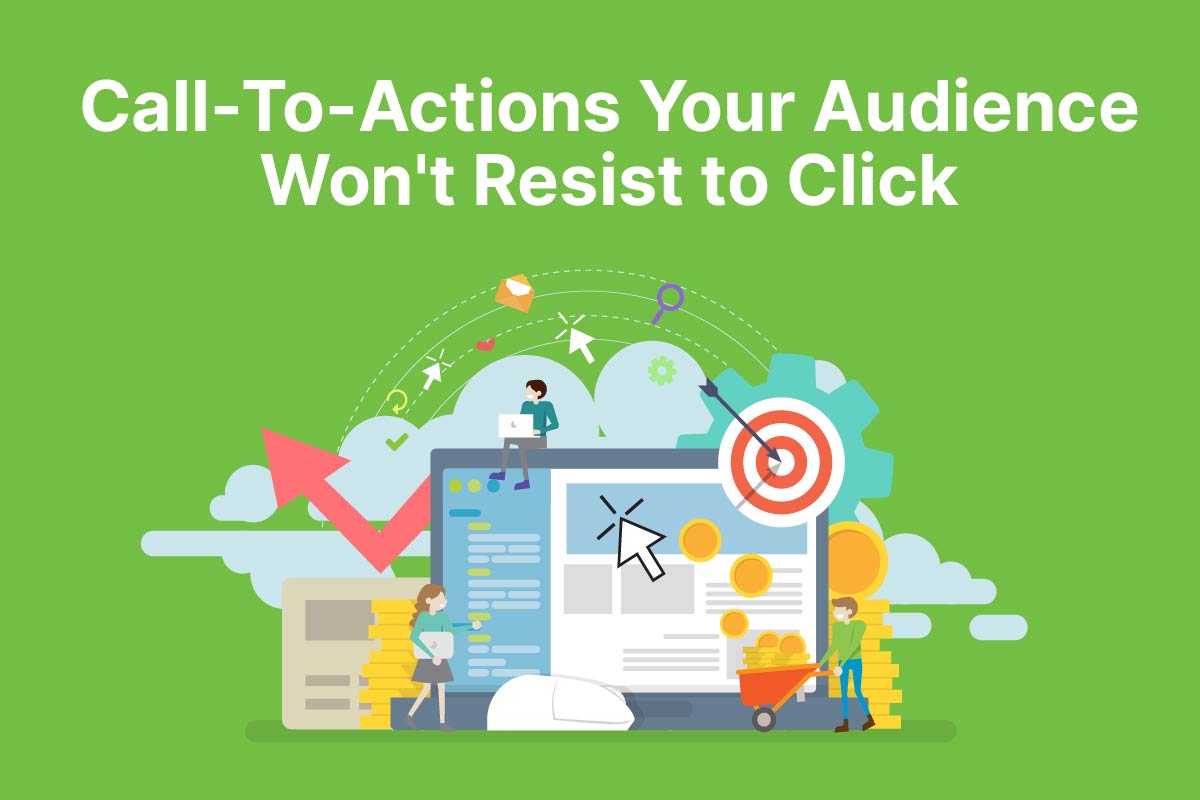Accelerate Blog / Must-Have Marketing Tools for Ecommerce Companies
Must-Have Marketing Tools for Ecommerce Companies
- Written by Keziah Cruz
- published on May 26, 2021

You’ve been pushing your business to break away from the confines of a typical brick-and-mortar store. With innovation and creativity by your side, your revenue and team have grown beyond your expectations. But the downside is you have more work on your plate, more clients to serve, and limited time to do everything efficiently.
It seems like running your e-commerce business starts to feel like you’re trying to build a plane and learn to fly it all simultaneously. It’s exciting but at the same time exhausting. If this scenario sounds familiar, you may want to consider investing in e-commerce tools as you begin to expand.
Investing in tools that can simplify and automate your task makes perfect sense. But you must decide which e-commerce tool is worth the investment and which offers you an advantage over your competitors.
Combined with the right marketing strategy, the right e-commerce tools can help scale your online store. In this article, we will discuss some of the popular tools you need when scaling your business. But first, let’s walk you through some of the questions you need to answer before scaling your e-commerce business.
Questions to ask before scaling your business
When thinking of scaling your business, you must remember that your needs will change. You’ll have to prepare yourself and your team for any unpredictable concerns that may come your way. Here are questions you need to answer:
1. Do I have a stable process?
You’ll find yourself testing different elements and variables for your marketing campaigns. You’ll also find yourself focusing on speed over quality. With that, you need to build a replicable and consistent process.
2. Do you have the human resource to get the job done?
Before anything else, ask yourself, will you need an additional workforce to get all your tasks done? What is their skill level? Am I willing to train them? Should I hire specialists? Having the right team with the right skill sets is vital to coping with a scaling business’s challenges.
3. Do I have the tools I needed?
The tools you’ve been using may still work well, but as you move towards scaling, the odds of investing in new tools are likely to happen.
You’ll need tools that aim to improve capabilities, such as artificial intelligence, to help you take over and automate everyday tasks.
4. What are my competitors doing?
As you scale, you want to use a strategy that will help you stand out against the players of your market. Studying your competitors will give you an edge to differentiate yourself. You’ll have insights on what they are doing well and where they’re lacking.
E-commerce tools to scale your business
A million-dollar business doesn’t happen overnight. Scaling your e-commerce business with tools is a great first step to strategically prepare your business for hypergrowth.
In a market saturated with hundreds of different e-commerce tools, chances are your business is already using at least one but has not maximized it full potential. Below are an overview of the features, benefits, and pricing, of each one of those tools.
1. Google Analytics

Image from Google Analytics
Google Analytics is the most popular and preferred by almost every e-commerce business owner when it comes to tracking. Setting it up is simple. All you need is code that you embed at the back end of your website. It allows you to get insights on the following:
- Transactions
- Conversion rate
- Total revenue
- Unique purchases
- Quantity of products sold
- Revenue by product
- Day to transaction
- Visits to transaction
2. KissMetrics
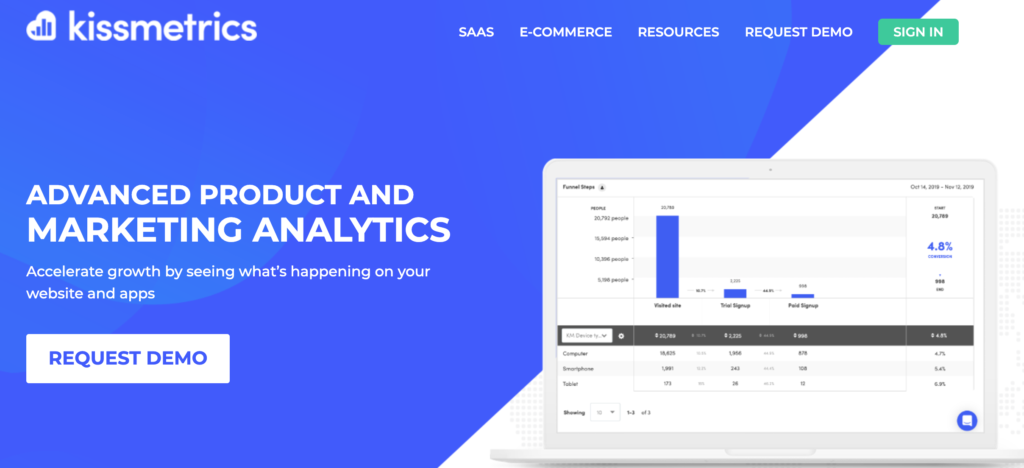
Image from KissMetrics
Often seen a Google Analytics alternative, KissMetrics is a website analytics tool focused on tracking data from your visitors’ behavior and history. The tool has become handy for merchants, as it helps track events on every touchpoint and provide an online shoppers’ funnel analysis. KissMetrics allows to accumulate all information about the visitor—see the resemblance with Google Analytics? The tool also offers segmentation, A/B testing, reporting, and staging sandboxes.
3. LiveChat
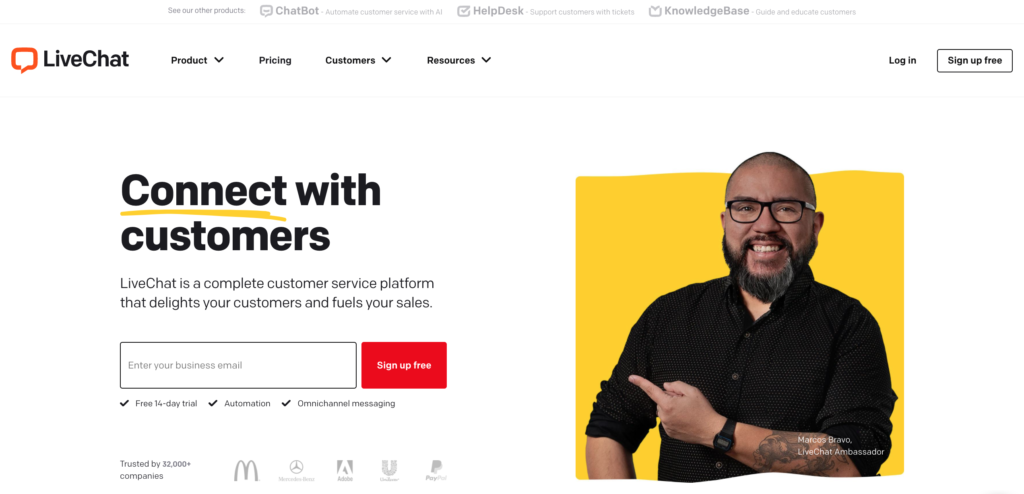
Image from LiveChat
LiveChat is a great tool to invest in terms of online customer service or engagement. Whether its finding a product or technical support, the LiveChat tool can guide your customers step by step. Did we mention the tool also features text, video assistance, co-browsing, and screen sharing that will help you enhance your customer experiences? Yes, all those features are included depending on the commitment you subscribe to.
4. Shopify
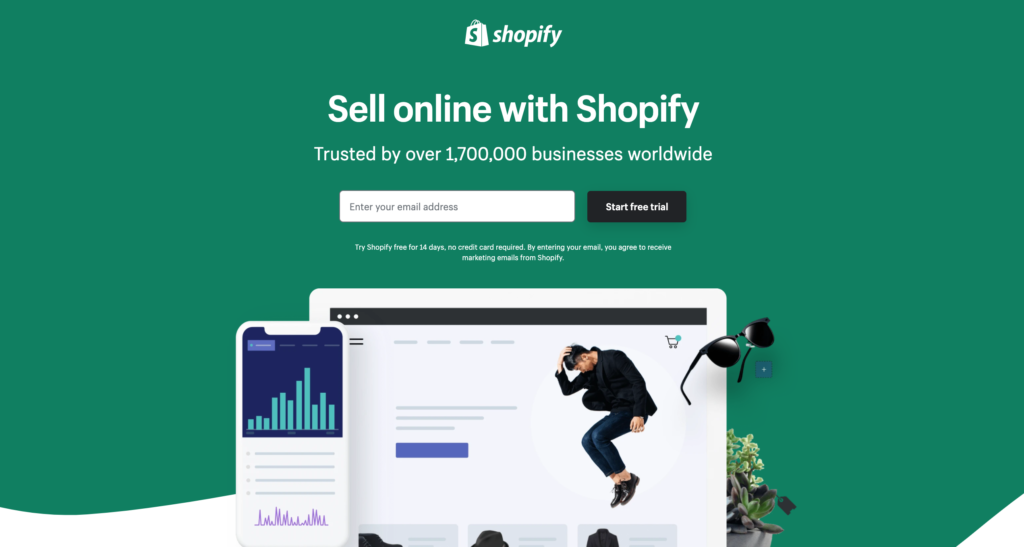
Image from Shopify
Shopify is considered one of the most popular e-commerce platforms for small business owners and enterprises. To be honest, we’re not surprised. The amount of time and thought poured in Shopify as a product is off the line. You can find almost everything there—easy-to-use interface, drag and drop elements, thousands of website themes, simple product management, integrated payment processing, customized order monitoring, and security.
5. WooCommerce
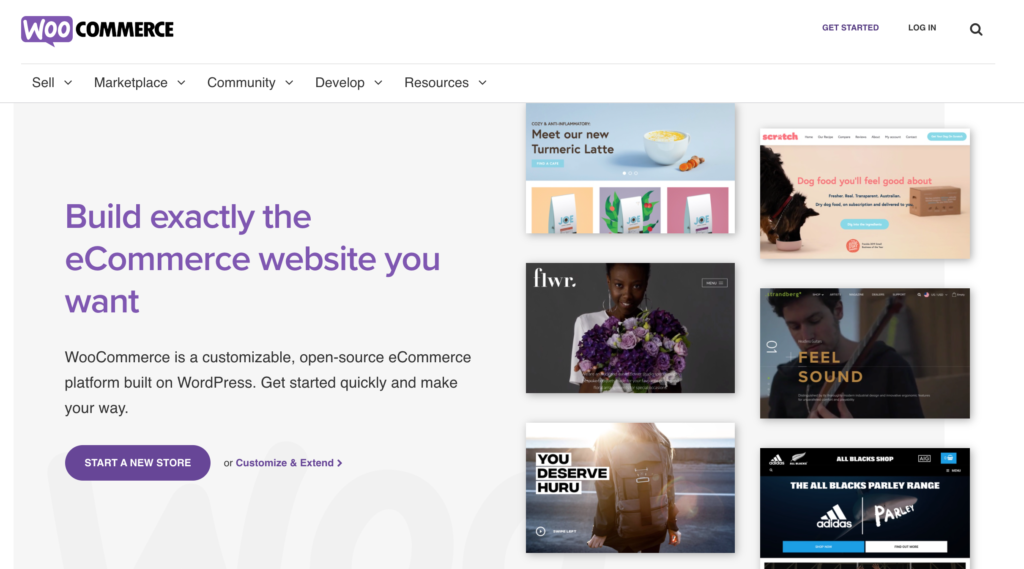
Image from WooCommerce
WooCommerce is a tool widely used by online business owners who uses WordPress. It is an open-source solution that allows you to build your website the way you want it. All you have to do is add the WooCommerce plugin to any WordPress site and set it up for free.
6. MailChimp
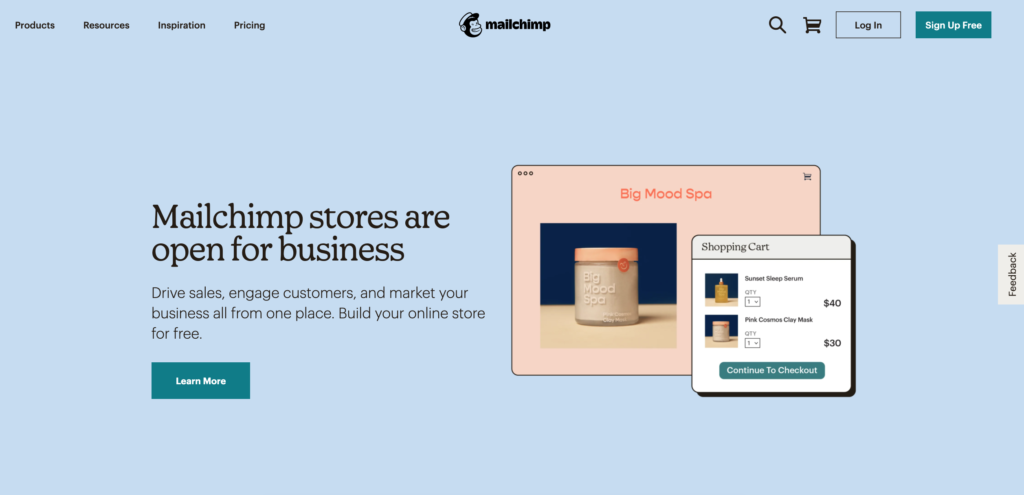
Image from MailChimp
When it comes down to connecting you online store with email marketing, automation, and campaign creation. MailChimp has been an all-time favorite by business owners. The tool helps businesses learn about their customers’ purchasing behaviors, which will help them create better targeted and personalized emails.
7. OmniSend
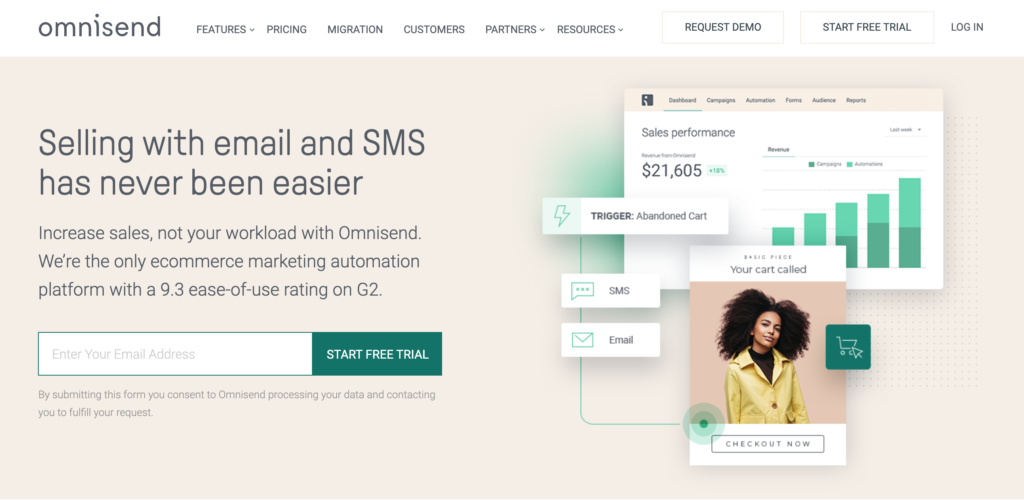
Image from OmniSend
Omnisend is a go-to platform for online sellers who needs an email marketing provider. Similar to MailChimp, with Omnisend, you can create e-commerce-focused email campaigns and automation workflows in just a few clicks. The platform also comes with a visual builder for email, workflows, forms, and landing pages, so it’s just a matter of customizing everything according to your brand.
8. SimilarWeb
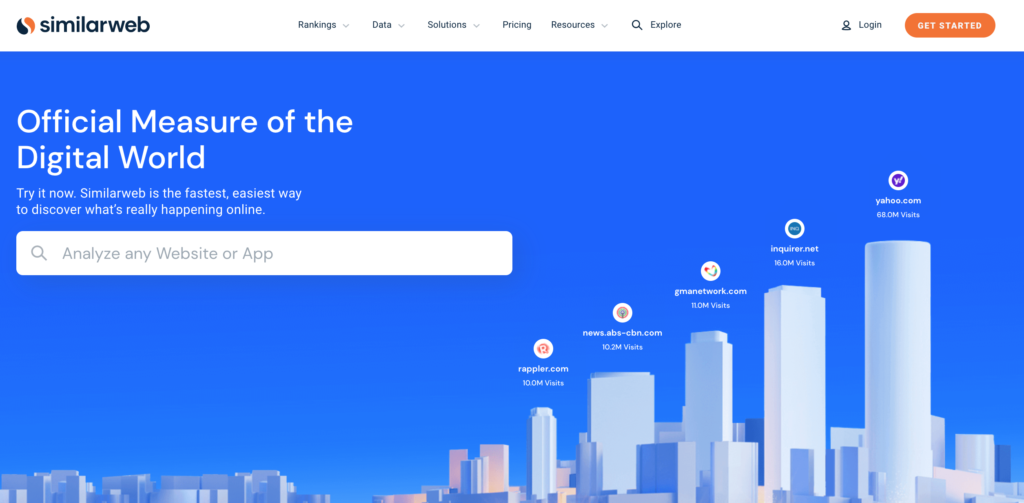
Image from SimilarWeb
SimilarWeb is a tool for spying on your competition. It helps retailers analyze what the other parties are doing regarding their marketing channels, strategy, and weak points. Moreover, it gives you data on top searches, high-performing pages, and rankings.
9. Wigzo
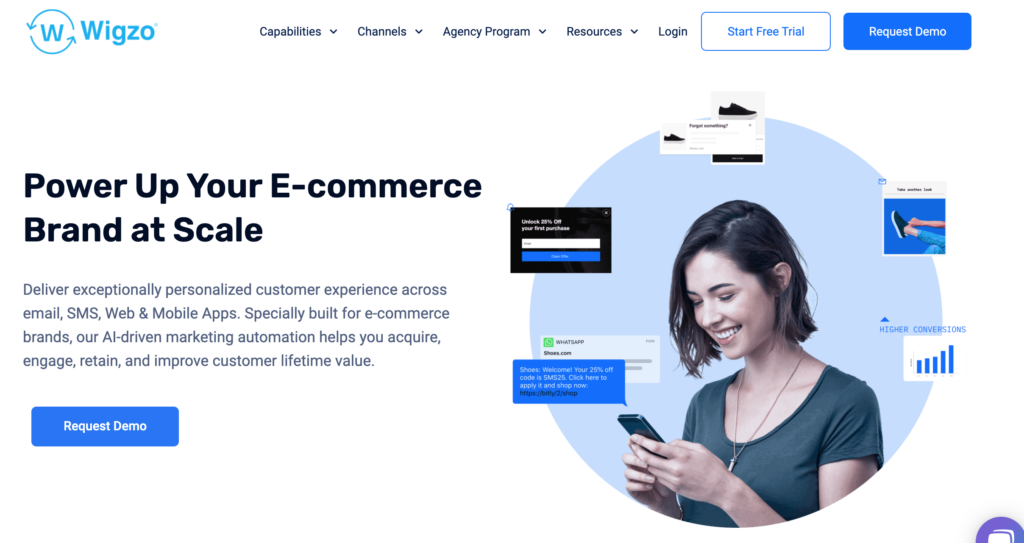
Image from Wigzo
Wigzo is machine learning technology that transforms your data into predictive insights which unite your marketing automation tactics with your customer’s behaviors. Some of the popular data it provides are:
- User profiling
- Behavioral segmentation
- Personalization for email and notification
10. SEMRush
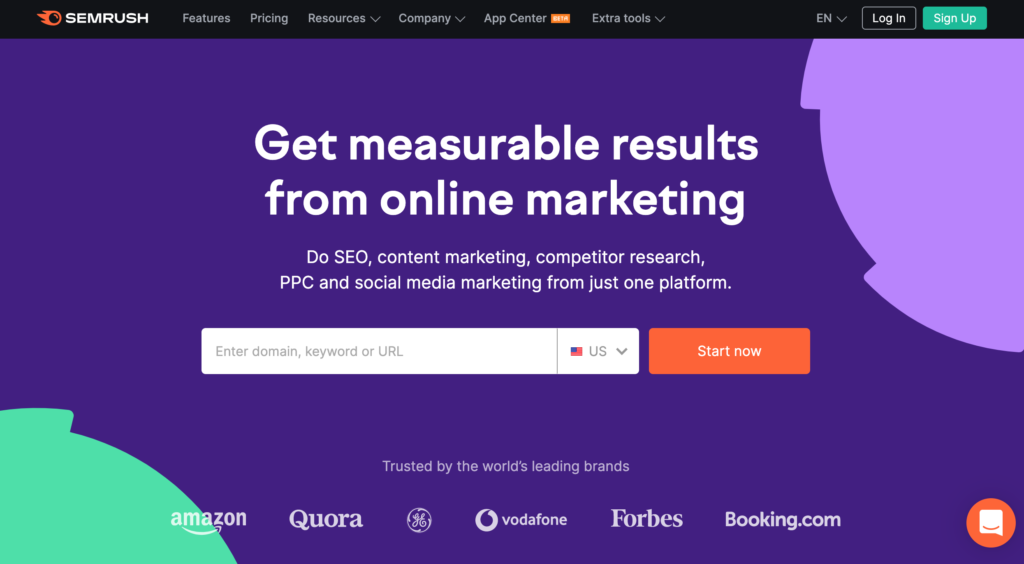
Image from SEMRush
SEMrush is a marketing analytics tool with top-of-the-line features for SEO—site audit, keyword research, backlink analytics, content planning tools, and competitor monitoring. Aside from SEO, it also provides marketers with a ton of SEM, social media, PR, and content-related analysis for your brand.
Final Thoughts
These are only a few of the most effective e-commerce tools you should invest in as a part of your e-commerce growth plan. All of these tools have the potentials to increase your sales and traffic in their own little or huge ways.
Remember when opting in for a new tool, always conduct test. Not all tools that works for one business may work for you. If you need a hand finding the perfect tool for your business, chat with one of our e-commerce experts. We will help you pick out the best stack of tools that will help you grow your business in the long-run.
Subscribe to our newsletter.
By clicking subscribe, you acknowledge Accelerate uses your information in accordance with its Privacy Policy. You may unsubscribe at any time using the link in our emails.



